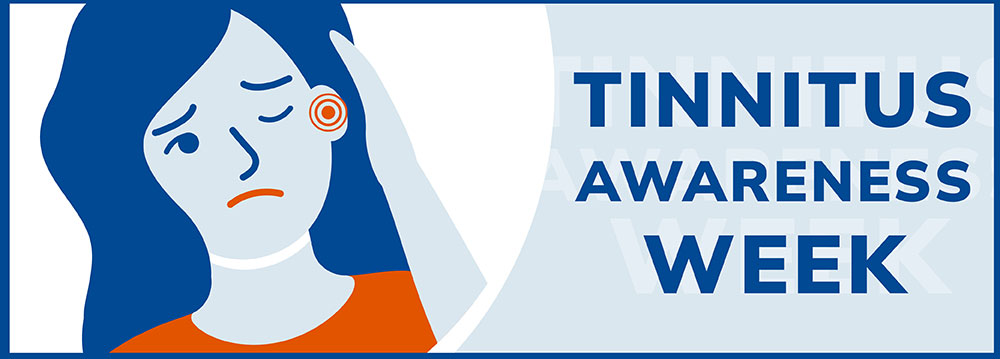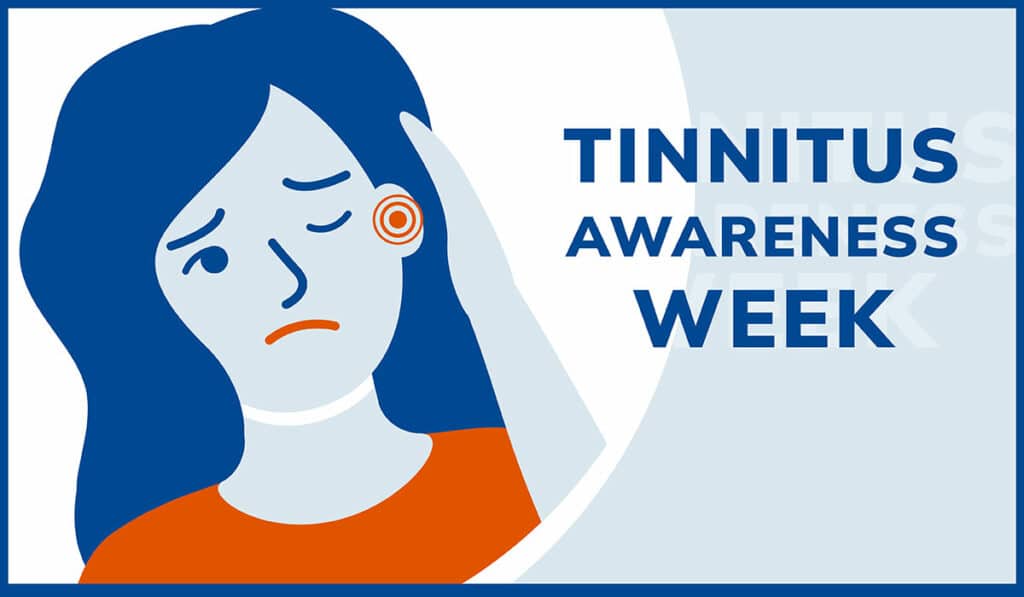
When a tinnitus patient comes into your office, they are likely already overwhelmed with how it is impacting their life, and they may even have frustrations with how their tinnitus has been addressed in the past. The phrase “learn to live with it” is sometimes used as the catch-all for tinnitus problems. While all of us with tinnitus (myself included) do have to live with it, dismissing a patient’s experience with this phrase can be devastating and potentially lead to thoughts of self-harm.
It is challenging work, professionally and emotionally, to talk someone down from self-harm. As Audiologists, we have not been specifically trained for this, but it is a situation we may find ourselves in at one point.
To help you navigate this challenging situation, I have laid out four steps to work with someone who might be in front of you considering self-harm to deal with their tinnitus.
Compassionate Listening
![]() Patients who are emotionally distraught with the prospect of experiencing tinnitus for the rest of their lives need their provider to be present with them in their difficulty. Being present requires facing our patients, stopping the self-talk in our heads, and really listening. This means hearing not only what they say, but how they say it. For more information on how to cultivate compassionate listening, please see https://www.compassionatelistening.org.
Patients who are emotionally distraught with the prospect of experiencing tinnitus for the rest of their lives need their provider to be present with them in their difficulty. Being present requires facing our patients, stopping the self-talk in our heads, and really listening. This means hearing not only what they say, but how they say it. For more information on how to cultivate compassionate listening, please see https://www.compassionatelistening.org.
Give Information
![]() Patients are starved for the right information about tinnitus. They may have been to several online sources, each with their own horror stories about tinnitus or selling the latest gimmick for “tinnitus treatment.” Helping our patients understand the neural nature of tinnitus is very important to de-mystifying tinnitus and helping them understand what is realistic to expect moving forward. For more information on this please see Tinnitus Retraining Therapy.
Patients are starved for the right information about tinnitus. They may have been to several online sources, each with their own horror stories about tinnitus or selling the latest gimmick for “tinnitus treatment.” Helping our patients understand the neural nature of tinnitus is very important to de-mystifying tinnitus and helping them understand what is realistic to expect moving forward. For more information on this please see Tinnitus Retraining Therapy.
Offer Hope
![]() The most consistent feedback I get when helping patients with their tinnitus is that I gave them hope when there seemed to be none. This is a fine line to take with patients as I do let them know that we currently have no way to “turn off” their tinnitus. This is what most people are looking for. However, like most chronic health conditions, there are highly effective ways to manage tinnitus so it is no longer such a drag on their life. If you would like to see reviews on our patients’ thoughts about how we have helped them with their tinnitus, see peninsulahearing.com/reviews.
The most consistent feedback I get when helping patients with their tinnitus is that I gave them hope when there seemed to be none. This is a fine line to take with patients as I do let them know that we currently have no way to “turn off” their tinnitus. This is what most people are looking for. However, like most chronic health conditions, there are highly effective ways to manage tinnitus so it is no longer such a drag on their life. If you would like to see reviews on our patients’ thoughts about how we have helped them with their tinnitus, see peninsulahearing.com/reviews.
Create a Plan
![]() Often creating a plan for tinnitus management helps patients maintain their hope moving forward to live and thrive with this condition. Whether it’s fitting hearing aids, giving written information on tinnitus, referring to a psychologist for CBT (Cognitive Behavioral Therapy) or all these things, having a plan will be something that helps patients move away from thoughts of self-harm and (eventually) to acceptance.
Often creating a plan for tinnitus management helps patients maintain their hope moving forward to live and thrive with this condition. Whether it’s fitting hearing aids, giving written information on tinnitus, referring to a psychologist for CBT (Cognitive Behavioral Therapy) or all these things, having a plan will be something that helps patients move away from thoughts of self-harm and (eventually) to acceptance.
Stresses like the pandemic and more can cause younger people seek help from a provider for tinnitus and other sound sensitivity issues. It is important that their provider can be there for them. Helping people with tinnitus can be incredibly challenging but rewarding at the same time. These steps can help make working with a distraught tinnitus patient more successful.
About the Author

Megan Nightingale, Doctor of Audiology has been serving the Kitsap and Jefferson County areas since 1990. An Audiologist for over 30 years, she and her team excel in providing very personalized hearing and tinnitus solutions. Dr. Nightingale has been an officer in several state and national professional organizations working with hearing and tinnitus issues over the years. “Having hearing and tinnitus issues myself, I have a very intimate knowledge and perspective of the problems people face when dealing with a hearing or tinnitus problem.” Our clients are like family. We pride ourselves on providing a home like, easy atmosphere in which to help our client with their hearing and tinnitus needs.









